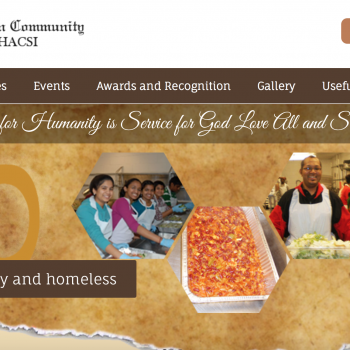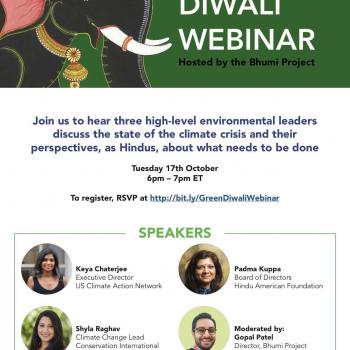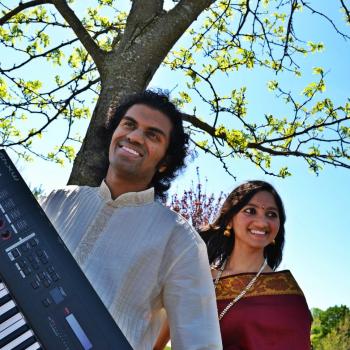Almost a decade ago, I discovered a kindred spirit when I served on the city’s ethnic issues board – formed because we are the city with the second highest ethnic diversity in MI. This friend and I had much in common: mothers with children around the same ages, families who were happy to support our activism, taking on leadership roles in our respective houses of worship (the Hindu temple and a United Methodist church), enthusiasm to embrace and engage the diversity of our community, and a shared understanding of our immigrant stories. We did many things together – co-chairing the City of Troy’s EthniCity festival, working with our public schools to ensure that our educators had a better understanding of the religious and cultural diversity in our midst, and initiating the first annual ethnic festival at our children’s middle school. We participated in the Troy-area Interfaith Group’s annual National Day of Prayer events, dragged our reticent spouses to dialogue on the International Day of Peace, and coordinated elements for interfaith Thanksgiving celebrations at local houses of worship. Our paths have diverged over the years, and yet they have stayed the same: today, our efforts focus on concerns over human rights abuses, particularly when the victims are girls and women.
She and others from the interfaith group been working to prevent human trafficking, an issue highlighted by the Metropolitan Coalition of Congregations. The Coalition’s parent organization, the Harriet Tubman Center, connects individuals, institutions and organizations to increase participatory democracy and create greater equity throughout all of Michigan. Human trafficking is one of their main concerns: it occurs in 161 countries, including the US, where over 100,000 people are forced into slavery in the US each year – including children and women, for both labor and sexual exploitation. Michigan is a major source, transit, and destination state for trafficking, comparable in many ways to the demographics of the State of Florida. Michigan’s proximity to the Canadian border and waterways increases the likelihood of trafficking in the state: unfortunately, eighty percent of Michigan police officers are untrained as to the crime of human trafficking. My friend’s church created a website to provide information, education and resources, organized programs and showed documentaries to raise awareness about this little noticed problem. She shared with me the heart wrenching story of a young girl who was trafficked in a neighboring city, and has committed to providing these victims a voice.
While she focuses on issues closer to home, I have become an advocate for victims on the other side of the world who also have no voice. As a Board member of the Hindu American Foundation, I am now involved in advocating for the rights of Hindus around the world who suffer human rights abuses. The Hindu American Foundation’s annual report on human rights abuses against Hindus was recently released and this year, focuses on the following regions where there are egregious or particular concerns: Afghanistan, Bangladesh, Malaysia, Pakistan, Bhutan, the Indian state of Jammu and Kashmir, Sri Lanka, Fiji, Saudi Arabia, and Trinidad and Tobago.
Similar to the Metropolitan Coalition, grassroots organizations on the other side of the world collect this information and their work is critical in raising awareness. In Bangladesh alone, the Bangladesh Minority Watch (BDMW), Bangladesh Hindu Buddhist Christian Unity Council USA (BHBCUC-USA), and Human Rights Congress for Bangladesh Minorities (HRCBM) have been at the forefront. Hindu minorities in these 9 countries and the Indian state of Jammu & Kashmir are subject to varying degrees of legal and institutional discrimination, restrictions on their religious freedom, social prejudice, violence, social persecution, and economic and political marginalization. Hindu women are especially vulnerable and face kidnappings and forced conversions in countries such as Bangladesh and Pakistan. Samir Kalra, HAF’s Director and Senior Human Rights Fellow, conducted a week long fact-finding mission at refugee camps in Jodhpur, India, that house Pakistani Hindu refugees, and recently highlighted the plight of Pakistan’s missing girls. Persecution by state and non-state actors – sometimes in conjunction – has led a growing number of Hindus to flee their country of origin and live as refugees.
And this is where kindred spirits can converge again, as we consider the plight of the Bhutanese Hindus. The Kingdom of Bhutan is a democratic constitutional monarchy, with elections held in 2008 and 2013. It is a multi-religious, multi-cultural, multi-ethnic, and multi-lingual society. But as reported by the Foundation, “in the early 1990s, Bhutan implemented the discriminatory “One Nation, One people” policies to forcibly homogenize the country to the majority Buddhist Drukpa culture. This culminated in the eviction of over 100,000 mostly Hindu Lhotshampas (ethnic Nepalis), drastically reducing their population from 42% to between 25% and 30%. Approximately 108,000 Lhotshampa refugees were housed in UNHCR administered camps in Nepal until 2007, when the “resettlement movement” first began. As of September 2013, more than 82,000 refugees were resettled in third countries, including over 69,000 in the U.S. The resettled Bhutanese Hindu community in the U.S. has reported facing a number of challenges, including a high incidence of mental illness and suicide, and difficulty retaining their cultural and religious traditions.” Michigan’s metro areas of Lansing and Grand Rapids are home to large populations of the Bhutanese refugees, and Hindu friends in the region are active in supporting them as they learn to adjust to a new life in America. And I know that my friend and I will add our efforts to theirs, as we work to create a more compassionate and caring world.











